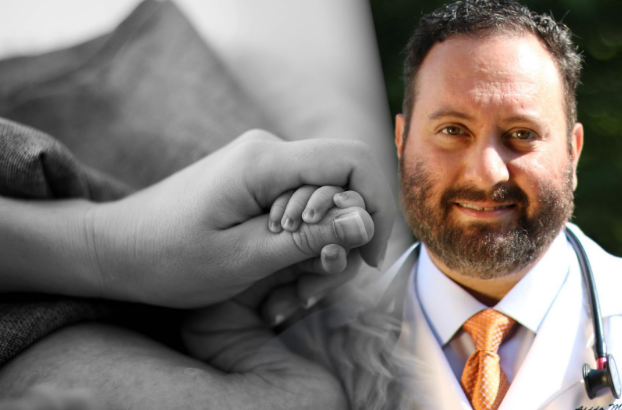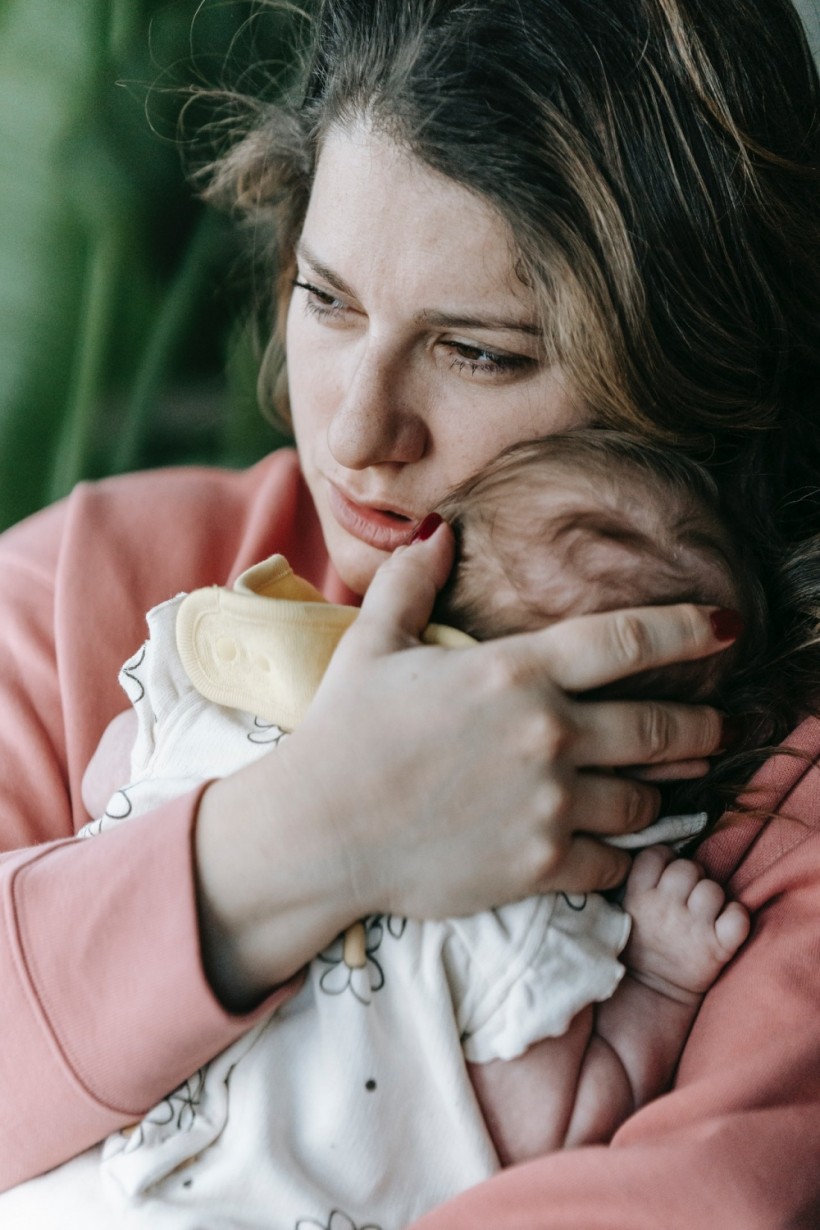Dr. Alddo Molinar Discusses Postpartum Depression

Bringing a new baby home can be one of the happiest times for any woman, but it can also be a nerve-wracking and life-changing experience. Dr. Alddo Molinar from the East Ohio Regional Hospital explains what you need to know about postpartum depression and how to deal with it.
Many mothers will face the baby blues, where they feel a little sad during the few days after delivery. Common symptoms include anxiety, restlessness, crying spells, loss of appetite, or trouble sleeping. Also known as postpartum blues, the baby blues are temporary feelings and will normally disappear on their own.
But, for other new moms, their sadness or feelings of insufficiency are much more than baby blues. Roughly 1 in 5 mothers experience postpartum depression-a serious but manageable condition.
Almost 400,000 women-about 15 percent of all new moms-experience postpartum disorders every year.
"Although postpartum depression is common, many moms struggle to understand it or know how to manage it," says Dr. Molinar.
Dr. Alddo Molinar: Postpartum Depression vs the Baby Blues?
"You are not alone if you're experiencing mood swings or emotional ups and downs after delivery," notes Dr. Molinar.
Over 80 percent of new moms experience the so-called baby blues.
"You might experience joy one minute and feel sad or tearful the next".
"These feelings are normal and usually start when the baby is two or three days old. As your hormones continue to balance back out, chances are that you will also start to feel better after one or two weeks. Strong support systems also generally encourage and support moms as they navigate changes related to bringing the baby home and adapting to the changes in their environment."
If the symptoms persist for more than two weeks, however, you may be suffering from a more serious mental health issue like postpartum depression (PPD).

Dr. Alddo Molinar: Symptoms of Postpartum Depression
PPD should not be ignored because it is a serious mental health issue that can have long-lasting impacts on both mom and baby.
Postpartum depression often makes it hard for moms to take proper care of their bodies and their newborn babies post-delivery. Unfortunately, many moms don't necessarily know the signs and symptoms of PPD and how to distinguish it from normal hormonal changes and/or sadness that may be a normal part of the post-delivery recovery process.
The most common symptoms of PPD include:
- Feeling down or sad regularly and often
- Tearfulness or crying spells that do not appear to have a specific cause
- Restlessness, irritability, or nervousness
- Loss of appetite
- Loss of pleasure or interest in life
- Fatigue
- Trouble sleeping
- Hopelessness
- Unexplained weight gain or weight loss
- Feeling disconnected from the baby
If you feel like you need help, ask for it. "The best way to diagnose and manage postpartum depression is by visiting a doctor", says Dr. Alddo Molinar. Your doctor can help you assess your mental health symptoms and whether further treatment or help is necessary.
Treatment options may include physiotherapy, prescription treatment, or both. Your doctor might also recommend visiting a mental health professional.

Dr. Alddo Molinar Shares Coping Strategies for Mothers with Postpartum Depression
The daily life of a mother caring for her new baby can be challenging. Dr. Alddo Molinar says postpartum depression can make it even more difficult for moms to attend to their daily responsibilities or activities.
"Treatment should be accompanied by tips on how to deal with postpartum depression," he adds.
Keep reading for helpful tips from Dr. Alddo Molinar on how to help cope with postpartum depression.
1. Tell someone
Do not be afraid to share your concerns and feelings with someone you trust -- a friend, parent, spouse, or even a colleague. Most importantly, do not feel like you are alone. Those closest to you can help you identify whether your feelings are manageable or whether you may need further assistance to help manage your new feelings and realities. A strong support network can help meet your needs and encourage you to seek needed help.
2. Remember past coping strategies
Dr. Molinar also recommends practicing coping methods that have worked for you in the past. While a new baby may be a unique challenge, chances are postpartum depression is not the first struggle you have faced in your life.
"If something was effective in the past, it will most likely work again," he says. He recommends coping strategies such as meditation, light exercise, establishing healthy boundaries, taking a shower, listening to music, and reading a book.
3. Exercise when possible
Although you are often busy, exercise can be a great way to deal with unpleasant emotions and stresses that may be contributing to postpartum depression. It can provide a time that is refreshing for you by providing a moment for you to be able to focus on your own body, boosting your confidence, improving your mood, and encouraging production of neurotransmitters that can help reduce symptoms of postpartum depression.
Finding the time to exercise is difficult, but you can still add exercise to your daily routine. Dr. Molinar recommends taking your baby for daily walks, enrolling for mom and baby exercise classes, or asking someone else to look after your baby when you're working out.
4. Concentrate on building a secure attachment bond with your baby
The bond between mom and baby is important for the emotional wellbeing of both. Focus on establishing this bond, relying on your doctor for guidance and support when you find yourself struggling.
"This is the best time to focus on kisses, cuddles, and memories," says Dr. Molinar.
He suggests the following tips to create a strong attachment bond with your baby:
- Cuddle your baby
- Hold or gently rock your baby
- Make eye contact
- Take the time to intentionally focus on enjoying being near your baby
- Talk or sing to your baby
- Observe the facial reactions your baby is making in response to your smile or voice
Bonding helps to keep you and your baby as physically and mentally healthy as possible.
5. Eat Well
Healthy eating will help you and your baby remain mentally and physically healthy. Ideally, focus on a well-balanced diet with nutrient-rich whole foods, such as whole grains, eggs, meats, nuts, fruits, and vegetables.
Eating healthy foods and being active can significantly boost a new mom's psychological and physiological health.
If you are able to breastfeed your child, eating well can also help directly contribute to the baby's physical health and well-being.
6. Prioritize Rest
Babies can be on their own schedules, waking up often and needing to be comforted, changed, and fed. That means you may not get enough sleep for the first few months.
Here's are a few tips from Dr. Molinar to help you get more rest and better sleep:
- During the first few weeks, try to prioritize focus on taking care of yourself and your baby.
- Try to avoid taking on extra activities or accomplishing additional tasks
- Sleep when your baby sleeps
- Keep baby items such as diapers, wipes, and extra clothes in close proximity so that they are easily accessible at night or while resting
- If friends and family visit, don't be afraid to excuse yourself
- Go outside for some time every day.
7. Connect With Other Moms
Although the emotional support of spouses, family, and friends is essential, Dr. Molinar also advises new moms to connect with other moms.
"Sometimes there's nothing more helpful than speaking to other mothers in the same phase of life or who have been through the same types of experiences," he says.
Joining a support group or a moms group can be a great way to connect socially, or share stories, challenges, and tips with other moms.
8. Get Professional Help
If you're struggling with a mental health issue after childbirth, it's is okay to get professional help. This should not be something which causes you embarrassment or fear.
"Treat your mental health condition just as your treat other health conditions," advises Dr. Molinar.
There is no reason to keep feeling sad or overwhelmed. Help is available.
A Word from Dr. Alddo Molinar
Postpartum depression is treatable. Most new moms experience an improvement in their symptoms within six months.
Dr. Molinar says that the key message he wants all moms to hear is that they shouldn't ever hesitate to get help.
"There are so many support avenues available to help women suffering from postpartum depression," he says. "Do not struggle alone. Let someone you trust know that you're struggling".
If you think your partner or a friend has PPD, encourage them to get help immediately.
© 2024 ParentHerald.com All rights reserved. Do not reproduce without permission.
* This is a contributed article and this content does not necessarily represent the views of parentherald.com
